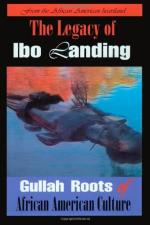|
This section contains 3,277 words (approx. 11 pages at 300 words per page) |

|
Although traditional Ibo society favored men, mainly because the family name and property were carried on through male descendants, the Ibos still recognized and valued the contributions women made to the community. They recognized the differences between men and women and the fact that their needs were often not identical. As such, they created two different powerful and autonomous political systems that handled the affairs of men and women separately. Consequently, men had their own political institutions where they managed and discussed issues affecting them and women had their own separate and equally powerful political institutions through which they managed their affairs.
The Women's Political Organization
Kaneme Okonjo, an Ibo who has studied past and present-day Ibo societies and the role of women in them, states, "We can label such systems of organization 'dual sex' systems, for within them each sex managed its own...
|
This section contains 3,277 words (approx. 11 pages at 300 words per page) |

|




